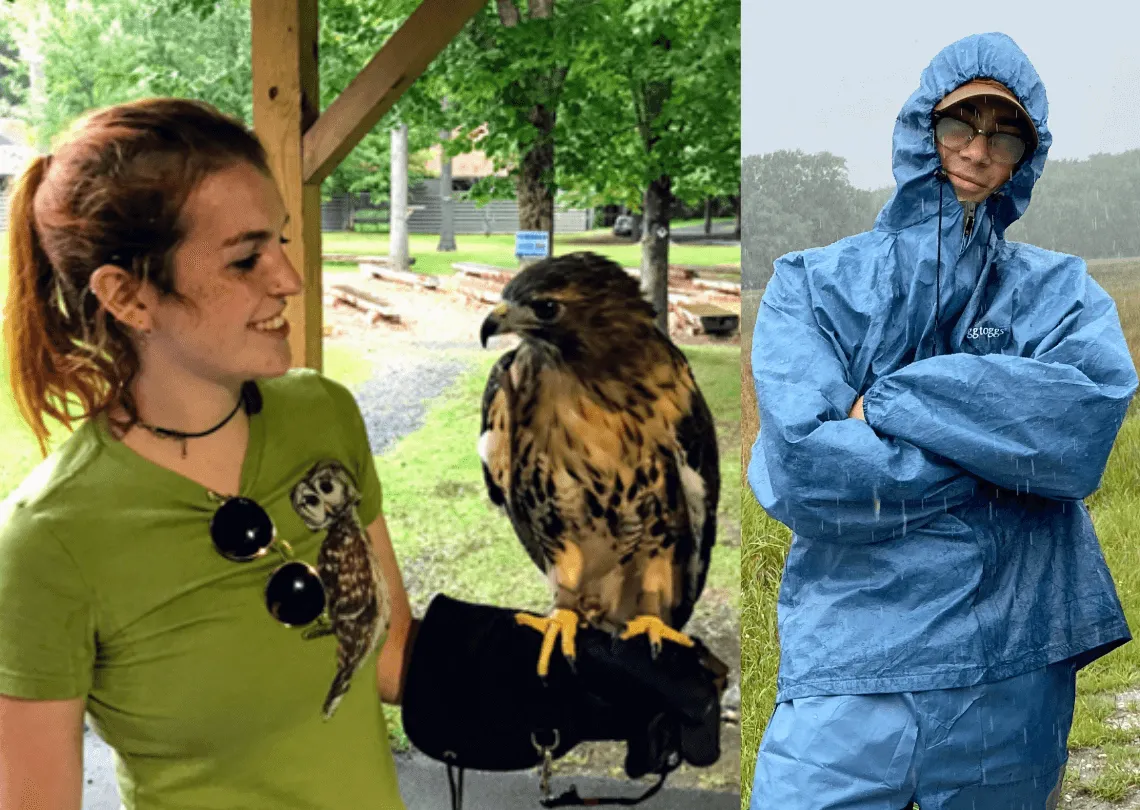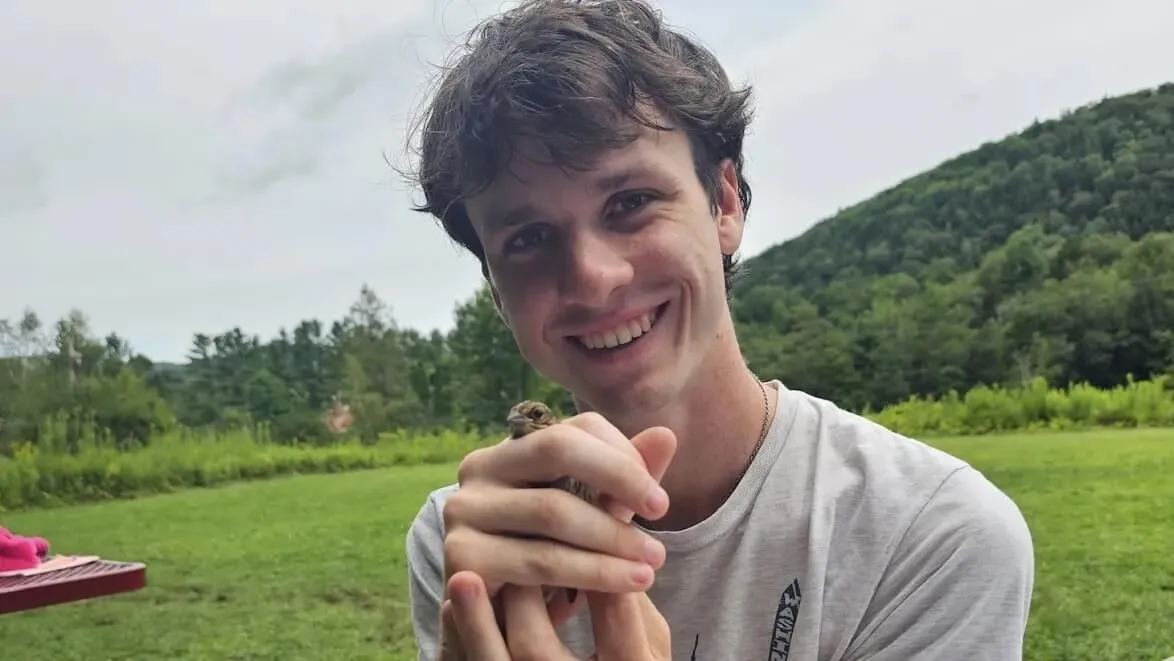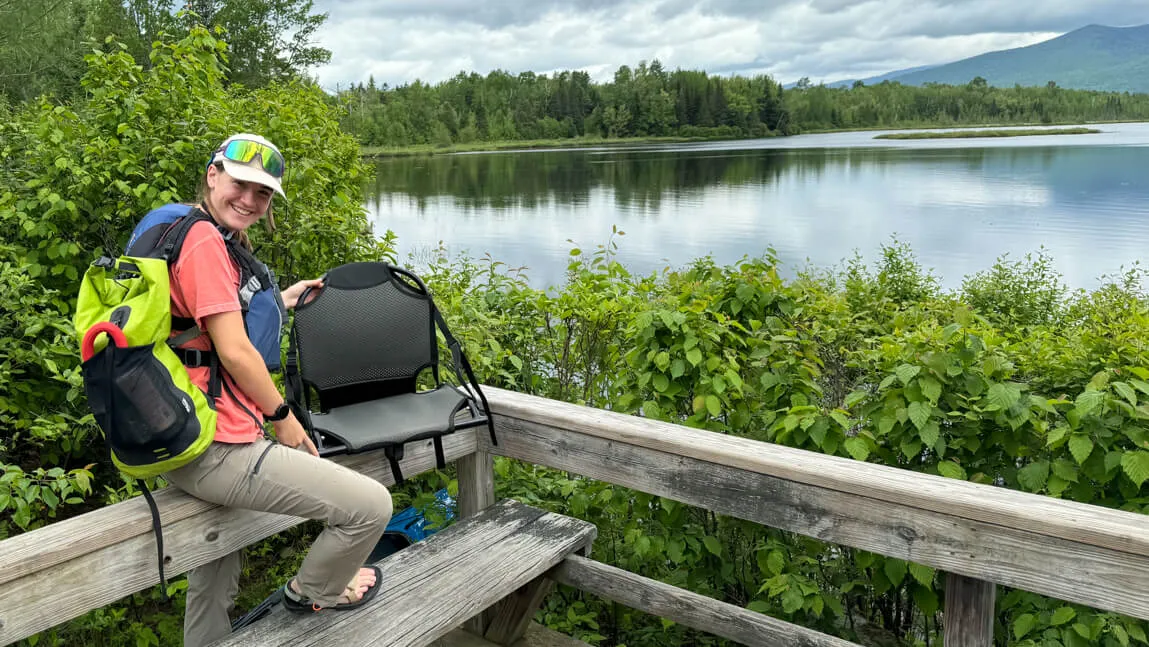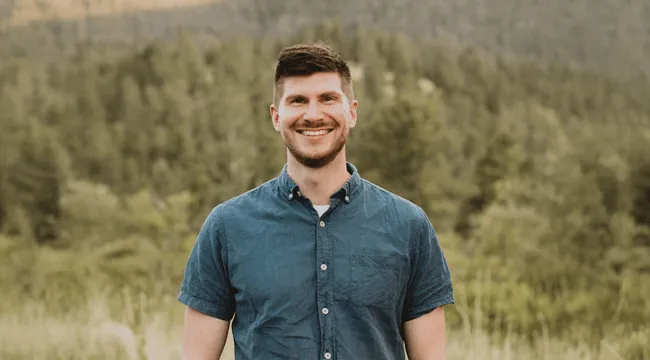Perhaps no program exemplifies this more than Wildlife and Fisheries Biology (WFB). Just as there are a tremendous number of animal species to learn about, and a number of different ways to focus one's work: toward conservation, management, rehabilitation, and more, students in and alumni of the WFB program can (and do!) pursue a large variety of jobs in their field.
Ramsey Anis '25, a WFB major, spent two summers working with various state agencies and organizations on mosquito surveillance and abatement. In 2023, Ramsey worked as a Lab and Field Technician for the Lemon Fair Insect Control District, which covers parts of Addison County. "We went out and tested mosquito abundance and saw how much disturbance there was, and then treated different areas where there was larva," Ramsey explained. "I got a lot of experience working with mosquitoes."
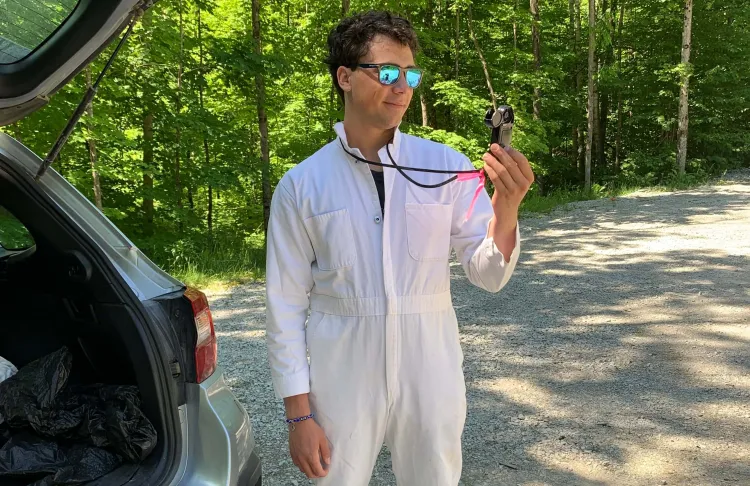
The job, as many technician jobs are, had Ramsey both in the field collecting samples and in the lab examining them. The experience was invaluable, and also helped Ramsey appreciate the quality of lab space and technology provided by the Rubenstein School and UVM. "That lab was, funnily enough, in a small shed behind a church," Ramsey recalled. "I really enjoyed my time there, but it was definitely a step below what I had gotten used to at Rubenstein in terms of facilities. It was a funny situation."
Ramsey networked with the lead biologist on the team, Craig Zondag, and other members of the Lemon Fair crew to land his summer 2024 internship. "Craig is a great guy, one of the best people in the field that I've ever been with. He was able to identify every plant, every bird, talk about wind, and think about all the different species and how they come together," Ramsey said. "I actually met my supervisors for last summer's job with the state through the work that I did with Craig. That was a valuable connection."
In 2024, Ramsey took what he had learned in Addison County to an internship with the state's Agency of Agriculture's Public Health and Agricultural Resource Management Division. As a vector management intern, his focus was twofold: Conducting routine tick and mosquito surveillance throughout the state, and helping inform public health decisions through the detection of various mosquito borne illnesses.
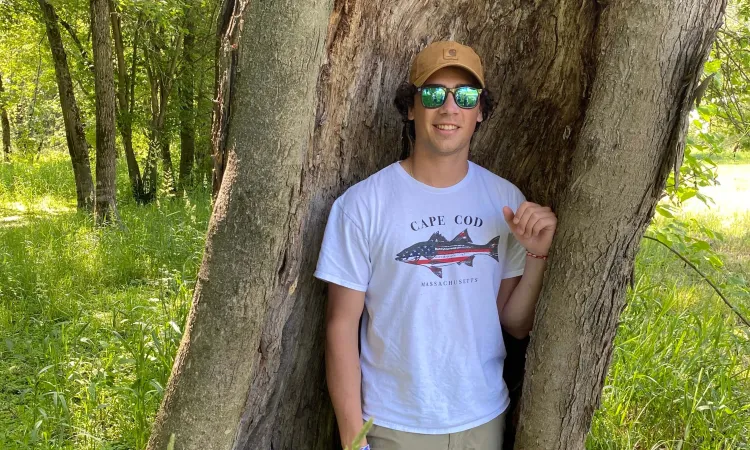
"I participated in a blood meal study that summer," Ramsey said. He explained that when mosquitoes feed on their host or their prey, they use blood meal to lay their eggs. When viewing mosquitoes under a microscope, some of them have an engorged abdomen colored with blood, indicating the presence of blood meal. "This was a study that we did with the CDC," Ramsey explained. "I was collecting all of these mosquitoes that had blood meals because the CDC was going to test what exactly mosquitoes were feeding on to get a better understanding of the dynamics between the mosquitoes and whether they were feeding on amphibians, birds, or other mammals. That was really cool."
In the summer of 2024, Eastern equine encephalitis, also known as triple E, was detected in Vermont. Triple E is a disease cased by a virus that is spread by mosquitoes, and two Vermonters contracted the virus, with one sadly passing away. The blood meal study that Ramsey helped with took on even more importance. Ramsey recalls that he collected samples from a pool in Colchester that was later identified as one of first triple E positive pools in Vermont. "I had a front-row seat to the internal public health reaction to that news in the lab," Ramsey said. "Seeing how the public health departments interacted with my team ad the findings of the fieldwork was really interesting. I really enjoyed it because it felt like I was actually like doing something productive with my work and contributing to helping people."
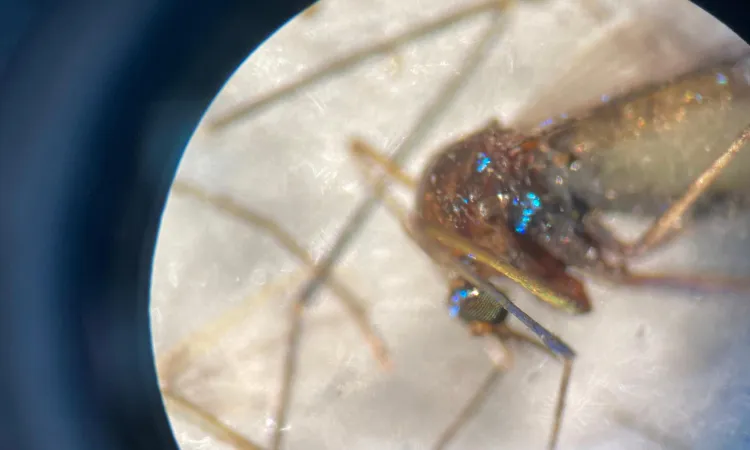
The skills Ramsey developed during his internships will serve him well in any lab, fieldwork, or public health role, and demonstrate the value of saying yes to opportunities, networking, and specializing in one specific area of study.
Ramsey isn't the only WFB student who found an interesting niche. Pierre Beaurang '24, who worked on multiple research projects while at the Rubenstein School, working his way up from bottom-dwelling macroinvertebrates to insects to birds, is now a Field Biologist at the Institute for Bird Populations in California. Caleb May '25, who worked at Across the Fence, Vermont's longest-running television show, while he was a Rubenstein School student, just started a new job at Marvelwood School in Kent, Connecticut, as a digital media and science teacher. "I will be teaching some film electives and co-teaching conservation biology, as well as doing some coaching," Caleb said. "I look forward to using both my college major and minor and helping get students passionate about their learning!"
Grace King graduated from the Rubenstein School in the May of 2020, a challenging time for anyone to find a job. "It was a pretty volatile time for anyone to be entering the workforce," Grace said. "I had thankfully interviewed and had been accepted to have a position at this summer camp at the Vermont Institute for Natural Science (VINS)."
The position worked out well for Grace, and gave her experience in outdoor education. "That was the first job that I had where I thought, 'This is something that I could really see myself loving,'" she said. After a two summers at VINS, including one as the lead Raptor Camp instructor teaching 4th-12th graders about raptor biology, ecology, and care, Grace did what thousands of UVM alums have done over the years: packed her things and headed west for Colorado.
"I didn't have a job or a plan," Grace said of her move to Denver. "I signed a lease and packed up my car and just moved across the country and said 'I'll figure it out when I get there.' I gave myself a year to figure it out and I applied for tons of positions, including positions that I was way overqualified for." It was a risk, but she was rewarded for her tenacity. In September of 2022 she started her role as a Park Ranger Naturalist for the city of Lakewood, Colorado.
What is a park ranger naturalist? "The job is relatively unique in the field of park rangers and here in the City of Lakewood," Grace explained. "As the park ranger naturalist for the City of Lakewood, 80 to 90% of my job responsibilities are focused on education and public outreach programming that we do through our parks as well as the majority of our in-house special events that we run. The other 10 to 20% is the law enforcement and emergency response that you would typically associate with a park ranger position."
As an outdoor educator, Grace visits classrooms, hosts field trips, works with the scout troops and the general public, and supports the city's public programming. "Anybody can sign up for our offerings," Grace said. "Whether it be guided hikes or different clinics that I put on, such as an intro to birding or a Hiking 101. A popular offering of ours is 'what do you need to know before you hike out here in Colorado?' We have a lot of people, myself included, that moved here to Colorado because of the access to the outdoors. In the clinic, I teach things like 'what do you actually need to bring with you? What do you need to know when you go hiking?' And then the basics of trail etiquette and trail safety, wildlife safety."
Grace feels like her experience both as an outdoor educator as VINS and as a Rubenstein School student learning from her professors prepared her well for this opportunity. "A lot of the classes that we took in WFB were those experiential learning classes," Grace said. "The labs are where I found a lot of the value in the education that I was receiving. That's really where I learned that I was such an experiential and hands-on learner, being out in the field and experiencing what we were talking about in the classroom first-hand." Now, Grace gets to offer children and adults in the Lakewood community the same hands-on learnings she so greatly benefited from at UVM.
